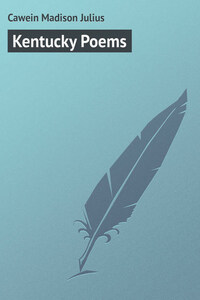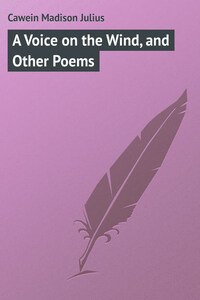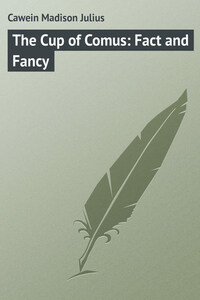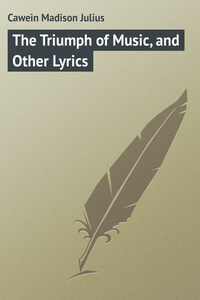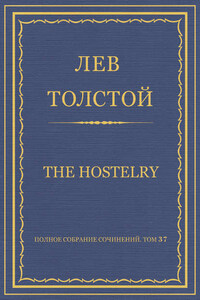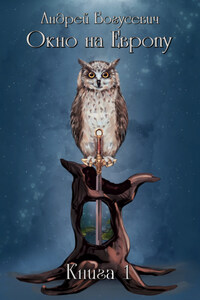Since the disappearance of the latest survivors of that graceful and somewhat academic school of poets who ruled American literature so long from the shores of Massachusetts, serious poetry in the United States seems to have been passing through a crisis of languor. Perhaps there is no country on the civilised globe where, in theory, verse is treated with more respect and, in practice, with a greater lack of grave consideration than America. No conjecture as to the reason of this must be attempted here, further than to suggest that the extreme value set upon sharpness, ingenuity and rapid mobility is obviously calculated to depreciate and to condemn the quiet practice of the most meditative of the arts. Hence we find that it is what is called 'humorous' verse which is mainly in fashion on the western side of the Atlantic. Those rhymes are most warmly welcomed which play the most preposterous tricks with language, which dazzle by the most mountebank swiftness of turn, and which depend most for their effect upon paradox and the negation of sober thought. It is probable that the diseased craving for what is 'smart,' 'snappy' and wide-awake, and the impulse to see everything foreshortened and topsy-turvy, must wear themselves out before cooler and more graceful tastes again prevail in imaginative literature.
Whatever be the cause, it is certain that this is not a moment when serious poetry, of any species, is flourishing in the United States. The absence of anything like a common impulse among young writers, of any definite and intelligible, if excessive, parti pris, is immediately observable if we contrast the American, for instance, with the French poets of the last fifteen years. Where there is no school and no clear trend of executive ambition, the solitary artist, whose talent forces itself up into the light and air, suffers unusual difficulties, and runs a constant danger of being choked in the aimless mediocrity that surrounds him. We occasionally meet with a poet in the history of literature, of whom we are inclined to say, Charming as he is, he would have developed his talent more evenly and conspicuously, – with greater decorum, perhaps, – if he had been accompanied from the first by other young men like-minded, who would have formed for him an atmosphere and cleared for him a space. This is the one regret I feel in contemplating, as I have done for years past, the ardent and beautiful talent of Mr. Cawein. I deplore the fact that he seems to stand alone in his generation; I think his poetry would have been even better than it is, and its qualities would certainly have been more clearly perceived, and more intelligently appreciated, if he were less isolated. In his own country, at this particular moment, in this matter of serious nature-painting in lyric verse, Mr. Cawein possesses what Cowley would have called 'a monopoly of wit,' In one of his lyrics Mr. Cawein asks —
'The song-birds, are they flown away,
The song-birds of the summer-time,
That sang their souls into the day,
And set the laughing hours to rhyme?
No cat-bird scatters through the hush
The sparkling crystals of her song;
Within the woods no hermit-thrush
Trails an enchanted flute along.'
To this inquiry, the answer is: the only hermit-thrush now audible seems to sing from Louisville, Kentucky. America will, we may be perfectly sure, calm herself into harmony again, and possess once more her school of singers. In those coming days, history may perceive in Mr. Cawein the golden link that bound the music of the past to the music of the future through an interval of comparative tunelessness.
The career of Mr. Madison Cawein is represented to me as being most uneventful. He seems to have enjoyed unusual advantages for the cultivation and protection of the poetical temperament. He was born on the 23rd of March 1865, in the metropolis of Kentucky, the vigorous city of Louisville, on the southern side of the Ohio, in the midst of a country celebrated for tobacco and whisky and Indian corn. These are commodities which may be consumed in excess, but in moderation they make glad the heart of man. They represent a certain glow of the earth, they indicate the action of a serene and gentle climate upon a rich soil. It was in this delicate and voluptuous state of Kentucky that Mr. Cawein was born, that he was educated, that he became a poet, and that he has lived ever since. His blood is full of the colour and odour of his native landscape. The solemn books of history tell us that Kentucky was discovered in 1769, by Daniel Boone, a hunter. But he first discovers a country who sees it first, and teaches the world to see it; no doubt some day the city of Louisville will erect, in one of its principal squares, a statue to 'Madison Cawein, who discovered the Beauty of Kentucky.' The genius of this poet is like one of those deep rivers of his native state, which cut paths through the forests of chestnut and hemlock as they hurry towards the south and west, brushing with the impulsive fringe of their currents the rhododendrons and calmias and azaleas that bend from the banks to be mirrored in their flushing waters.
